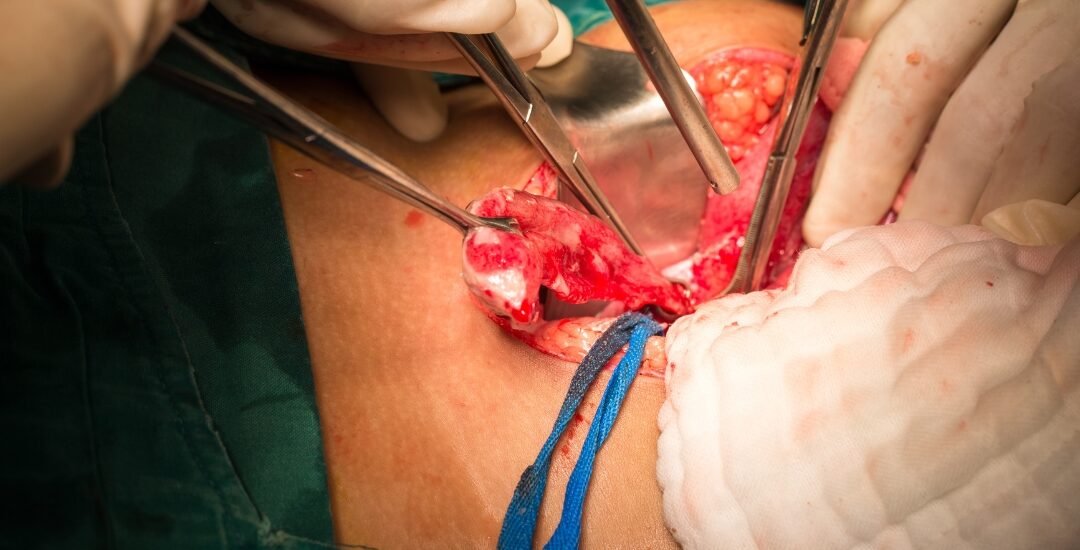A burst appendix is a serious medical emergency that requires immediate attention. The appendix is a small pouch attached to your large intestine, and when it becomes inflamed—a condition called appendicitis—it can sometimes rupture if untreated. Understanding what happens if your appendix bursts and how it’s treated can save your life.
In this guide, we’ll explain the dangers of a ruptured appendix, symptoms to watch for, and the treatment options available to get you on the road to recovery.
Table Of Contents
- What Is A Burst Appendix?
- Causes And Risk Factors For Appendix Rupture
- Symptoms Of A Ruptured Appendix
- What Happens Inside The Body After The Appendix Bursts?
- Complications From A Burst Appendix
- Treatment For A Ruptured Appendix
- Recovery And Outlook
- When To Seek Emergency Care
- Call To Action
- Final Thoughts
1. What Is A Burst Appendix?
A burst or ruptured appendix occurs when the inflamed appendix tears open, spilling infectious materials into the abdominal cavity. This can cause a severe infection called peritonitis and the formation of abscesses. It’s a life-threatening condition that needs emergency surgery and antibiotics.
2. Causes And Risk Factors For Appendix Rupture
- Delayed treatment of appendicitis
The most common cause of a ruptured appendix is not getting medical help quickly enough. When inflammation continues without intervention, pressure builds inside the appendix until it eventually bursts. - Lack of early symptoms or misdiagnosis
In some cases, appendicitis may start with mild or vague symptoms that can be mistaken for indigestion, gas, or a stomach bug. This can delay diagnosis and allow the condition to worsen unnoticed. - Young children
Kids often struggle to describe their pain accurately. As a result, their appendicitis may go undetected until it’s severe or ruptured. Their bodies also progress faster to complications. - Older adults
Seniors may have a weaker immune response or less specific symptoms like general fatigue, confusion, or mild discomfort. This makes it easier to miss the warning signs, increasing the risk of rupture. - Immunocompromised individuals
People with weakened immune systems due to chronic illness, cancer treatment, or medications may not develop a strong inflammatory response. This can hide the severity of their condition until it’s critical. - Underlying health conditions
Disorders like gastrointestinal infections or inflammatory bowel disease can produce symptoms similar to appendicitis. This overlap can delay correct diagnosis and increase the chance of rupture.
3. Symptoms Of A Ruptured Appendix
Symptoms of a burst appendix usually worsen rapidly and can include:
- Sudden, severe abdominal pain
- High fever and chills
- Abdominal swelling and tenderness
- Rapid heartbeat
- Nausea and vomiting
- Confusion or weakness (in severe cases)
If you experience these symptoms, seek emergency medical help immediately.
4. What Happens Inside The Body After The Appendix Bursts?
When the appendix bursts, bacteria and pus leak into the abdominal cavity, causing peritonitis—a dangerous infection of the lining of the abdomen. The body may try to contain the infection by forming abscesses, pockets of pus that need drainage. Without quick treatment, this infection can spread throughout the body, leading to sepsis, organ failure, and death.
5. Complications From A Burst Appendix
Complications include widespread infection, abscess formation, sepsis, intestinal blockage, and longer hospital stays. Prompt surgical intervention and antibiotic treatment are crucial to reduce these risks.
6. Treatment For A Ruptured Appendix
Treatment typically involves emergency surgery—either laparoscopic or open—to remove the appendix and clean the abdominal cavity. You’ll also receive strong intravenous antibiotics to fight infection. In some cases, abscesses may require drainage before or after surgery.
7. Recovery And Outlook
Recovery from a burst appendix takes longer than uncomplicated appendicitis. Hospital stays may last one to two weeks or more, depending on infection severity. With timely treatment, most patients recover fully, but delays can increase risks of lasting health problems.
8. When To Seek Emergency Care
If you have sudden, worsening abdominal pain—especially with fever, vomiting, or confusion—don’t delay. Go to the nearest emergency room or urgent care immediately. Early treatment saves lives.
9. Call To Action
Experiencing severe abdominal pain or symptoms that might signal a burst appendix? Visit a walk-in clinic near you or head to emergency care immediately. At Walk In PCP, we provide fast evaluations and can guide you to the right treatment.
10. Final Thoughts
A ruptured appendix is a medical emergency with serious risks, but prompt diagnosis and treatment dramatically improve outcomes. Know the warning signs and act quickly if you suspect your appendix has burst.
Disclaimer
This blog is for informational purposes only and does not replace professional medical advice. If you experience severe abdominal pain or other symptoms, seek emergency medical care immediately.
